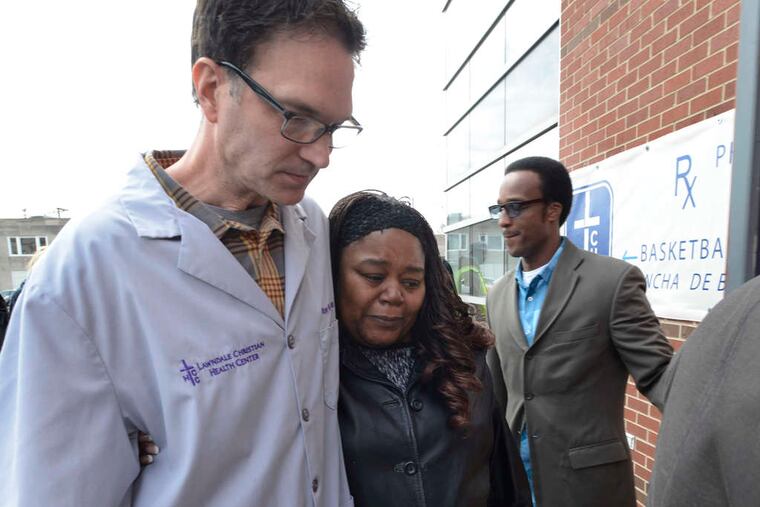Pa.-based nonprofit suffers first casualty overseas
LEMOYNE, Pa. - Cure International has long gone where others fear to tread. The global health-care nonprofit has set up clinics in war zones and regions plagued by civil unrest since its founding in 1996, including taking over a bombed-out Red Cross hospital in Kabul, Afghanistan, in 2005.

LEMOYNE, Pa. - Cure International has long gone where others fear to tread.
The global health-care nonprofit has set up clinics in war zones and regions plagued by civil unrest since its founding in 1996, including taking over a bombed-out Red Cross hospital in Kabul, Afghanistan, in 2005.
It was there that the group on Thursday suffered its first fatality as a result of violence.
As news broke that an Afghan gunman had killed three Americans at the site, the spotlight turned to the group, based in a small office building on a residential street in a borough outside Harrisburg.
Mark Knecht, Cure's chief financial officer, emerged from the office Thursday just long enough to read a statement saying the organization "grieved to confirm the death of one its doctors."
Ed Stillman, a Chester County resident and board member for 15 years, later said the board would likely agree to continue operations in Afghanistan despite the tragedy.
"We're trying our best to pick up pieces," Stillman said. "We're not going to abandon families who do need us."
Cure says its mission is to "heal the sick and proclaim the kingdom of God," and it seeks to promote medical and spiritual healing, according to its tax filings. Stillman said he hoped the shooting was not motivated by religion.
"As Christians, we have a responsibility to try to care for people who do not have medical resources we have available, especially for children," he said. "In most of the countries we're in, they appreciate the medical resources that without Cure would not be there."
Scott Harrison, an orthopedic surgeon and businessman from Western Pennsylvania, founded Cure after making a windfall from the sale of an orthopedic manufacturing company where he was chief executive.
He used the profits to build the first Cure hospital, in Kenya.
Around that time, Stillman met Harrison. He said he was captivated by Harrison's vision, rooted in Christian faith, of helping save children in developing countries.
While the nonprofit gained little media attention in the United States, its worldwide operations grew as hospitals began opening in more countries across Africa, and in the Dominican Republic and United Arab Emirates.
In 2011, the nonprofit reported about $20 million in assets and spent nearly that much on operations worldwide, according to its tax filings. The same year, Cure opened a hospital in the Philippines with the foundation run by former NFL quarterback Tim Tebow.
The group now employs more than 1,000 people.
Doctors associated with Cure have pioneered treatments for hydrocephalus, an often-fatal nervous system disorder that affects the brain, and have improved the lives of thousands of children born with club foot.
Cure opened its first Afghan clinic in war-torn Kandahar in 2003 to serve a desperate population where one-quarter of the children were dying before age 5. A move to Kabul two years later was viewed as a safer alternative.
"Kabul was considered less of a concern than Kandahar," said Stillman, president of Stillman Volvo in West Chester.
Cure moved its doctors and nurses into the abandoned Red Cross facility in 2005, setting up a 115-bed maternity and children's care center with the blessing of the Afghan government.
At the time, Harrison told the Harrisburg Patriot-News that Cure was building and expanding in Afghanistan "even as others have evacuated, because the need is so great."
Knecht told reporters that the group had no intention of giving up on the sick and disabled of Afghanistan.
"Cure International remains committed to serving the Afghan people," he said.